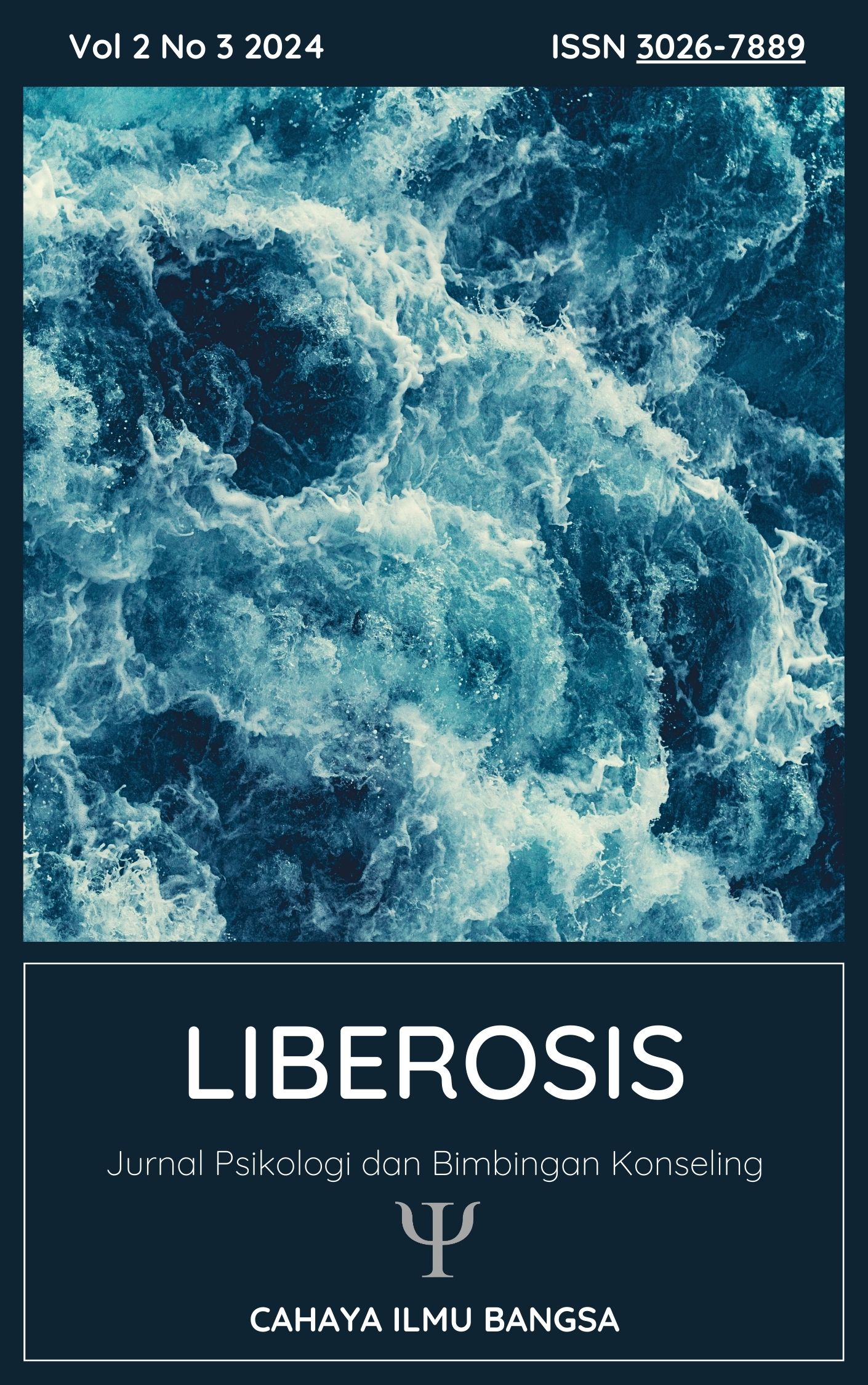Abstract
This study aims to analyze the relationship between emotional intelligence and psychological well-being among 2024 cohort students of the Faculty X at University Y. The research design is correlational quantitative, with a population of 529 students and a sample of 223 respondents obtained through purposive sampling based on the Krejcie–Morgan table (Sekaran, 2006). The instruments used were Likert scale questionnaires developed from Goleman’s model (2009) for emotional intelligence and Ryff’s model (1989) for psychological well-being, with prior validity and reliability testing. Data analysis included the Kolmogorov–Smirnov normality test (p = 0.200) and the deviation from linearity test (p = 0.443), confirming that the assumptions of normality and linearity were met. Furthermore, Pearson correlation analysis yielded a coefficient of r = 0.718 (p < 0.001), indicating a strong positive relationship between emotional intelligence and psychological well-being. The coefficient of determination (R² = 0.516) revealed that 51.6% of the variation in psychological well-being is explained by emotional intelligence, while the remaining variance is influenced by other unexamined variables. These results confirm that students' ability to recognize and manage emotions significantly contributes to their psychological well-being.
Penelitian ini bertujuan untuk menganalisis hubungan antara kecerdasan emosional dan kesejahteraan psikologis pada mahasiswa Fakultas X Universitas Y angkatan 2024. Desain penelitian adalah kuantitatif korelasional dengan populasi 529 mahasiswa dan sampel sebanyak 223 responden yang diperoleh melalui purposive sampling berdasarkan tabel Krejcie–Morgan (Sekaran, 2006). Instrumen menggunakan kuesioner skala Likert yang dikembangkan dari model Goleman (2009) untuk kecerdasan emosional dan Ryff (1989) untuk kesejahteraan psikologis, sebelumnya diuji validitas dan reliabilitas. Analisis data meliputi uji normalitas Kolmogorov–Smirnov (p = 0,200) dan uji linieritas deviation from linearity (p = 0,443), yang menunjukkan bahwa asumsi normalitas dan linearitas terpenuhi. Selanjutnya, analisis korelasi Pearson menghasilkan koefisien r = 0,718 (p < 0,001), mengindikasikan hubungan positif kuat antara kecerdasan emosional dan kesejahteraan psikologis. Koefisien determinasi (R² = 0,516) menunjukkan bahwa 51,6 % variasi kesejahteraan psikologis dapat dijelaskan oleh kecerdasan emosional, sedangkan sisanya dipengaruhi oleh variabel lain yang tidak diteliti. Hasil ini menegaskan bahwa kemampuan mahasiswa dalam mengenali dan mengelola emosi berkontribusi signifikan terhadap kesejahteraan psikologis mereka.
